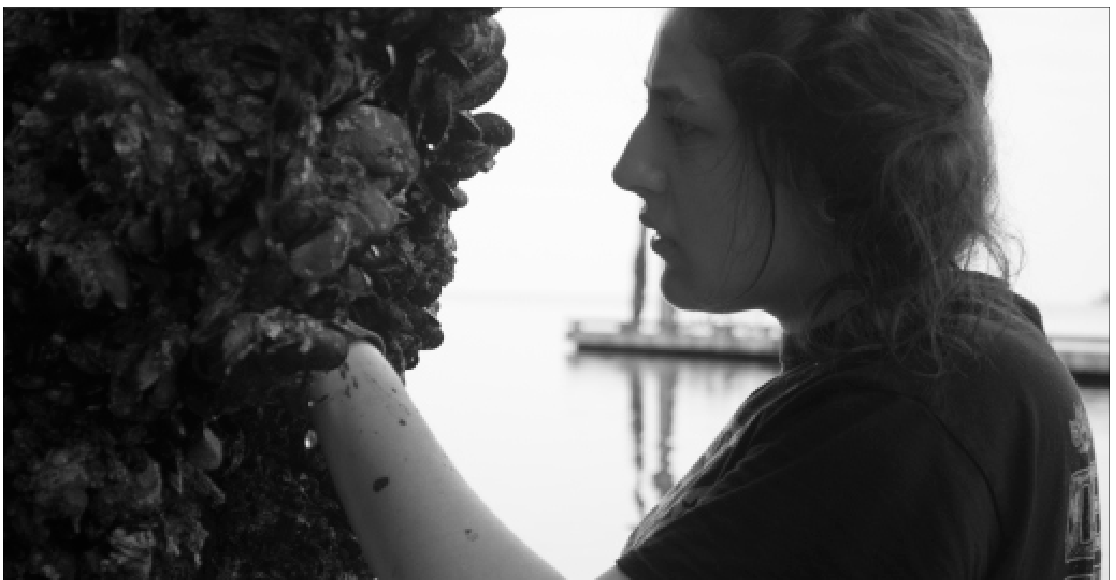Caroline Rhoads
The Communicator
This spring, Students and teachers spent three nights sleeping outdoors at Camp Ramblewood on the Sequim Bay. While there, they get to see the ocean light up at night as the jellyfish illuminated the water.
For almost 45 years the science department at Spokane Falls sends a group of students to the Olympic Peninsula for a field-studies course in Biology. This year the trip was from May 15th to May 18th.
“It was one of my favorite parts” Acacia England, one of the students, said. “I would take the the end of the net and [drag it through the water] you could see it shimmer.” This light, called bioluminescence, is caused by a chemical reaction produced by Dinoflagellates, which are microscopic single-celled Protists (a kingdom of organisms like plants or animals).
The dinoflagellates are also responsible for the red-tides that make consuming shellfish toxic during certain times of the year. “The sign only warns against eating two types of clams,” Dr. Laurel Hansen , one of the biology professors who works to keep the trip going every year, said. “But I wouldn’t eat any of them; they’re all filter-feeders.”
During the day, students and instructors went out to explore the beach during low tide, when all the organisms are easier to find and document.
In addition to Sequim Bay, the class also visited Rocky Point at Crescent Bay and split up to visit different areas depending on their projects and interests.
“The rocky beach was really cool,” England said. “It was like a carpet of mussels, there was so much there. It was really hard to believe.”
“I saw more sea life there than any other coast ever,” Joey Boyd, another student who attended the trip, said.
Field studies classes offer students something they don’t get in the classroom. “One of the most educational experiences a student can have is to go out and experience it,” Dr. Hansen said. “You can show them so much in the classroom, but it’s not like being outside.”
The class requires students to get close to their organisms in their natural environment and observe how they relate to the ecosystem.
“You actually get to see their movements and mannerisms,” Timmy Lister, an SFCC chemistry major said. “You can learn all the theories, but until you go out and apply what you learned, you’re not getting the overarching picture.”
This creates a deeper learning experience and complements what students have been learning in the classroom. “The ideal learning experience is hands-on,” Dr. Hansen said, “second best is from book and labs.”
According to Dr Hansen, another aspect that students benefit from is the camaraderie. Students were expected to work together to prepare meals and maintain the campsite during the stay.
“It was cool getting to know each other,” England said.
“I don’t think I would have passed this last test if it was for the help I received from O’Ryan,” Boyd said.
Field studies course are costlier than classroom courses though. Another field studies class offered at SFCC, Field Botany, can only be offered every other year or so because of the costs associated with travel, according to the instructor Dr. Ruth Kirkpatrick.
“The department is under pressure to continue funding,” Dr. Hansen said. “Other universities charge a $100 fee and that would have seriously hurt our students because we know our students couldn’t afford to come up with that kind of money.” Currently, the price to go on the trip for students at SFCC is the cost for one credit and a small lab fee.
According to Dr. Hansen, the instructors all volunteer their time to help out though, and sometimes there is even a waiting list. “Many students have never been to the seashore, have never been to the rainforest, it’s a great opportunity,” Dr. Hansen said.
“It was the coolest thing I’ve ever done by far,” Lister, said. The course will be offered again in the 2014-15 school year and is open to all students enrolled in the biology majors series, botany or zoology course for spring.
